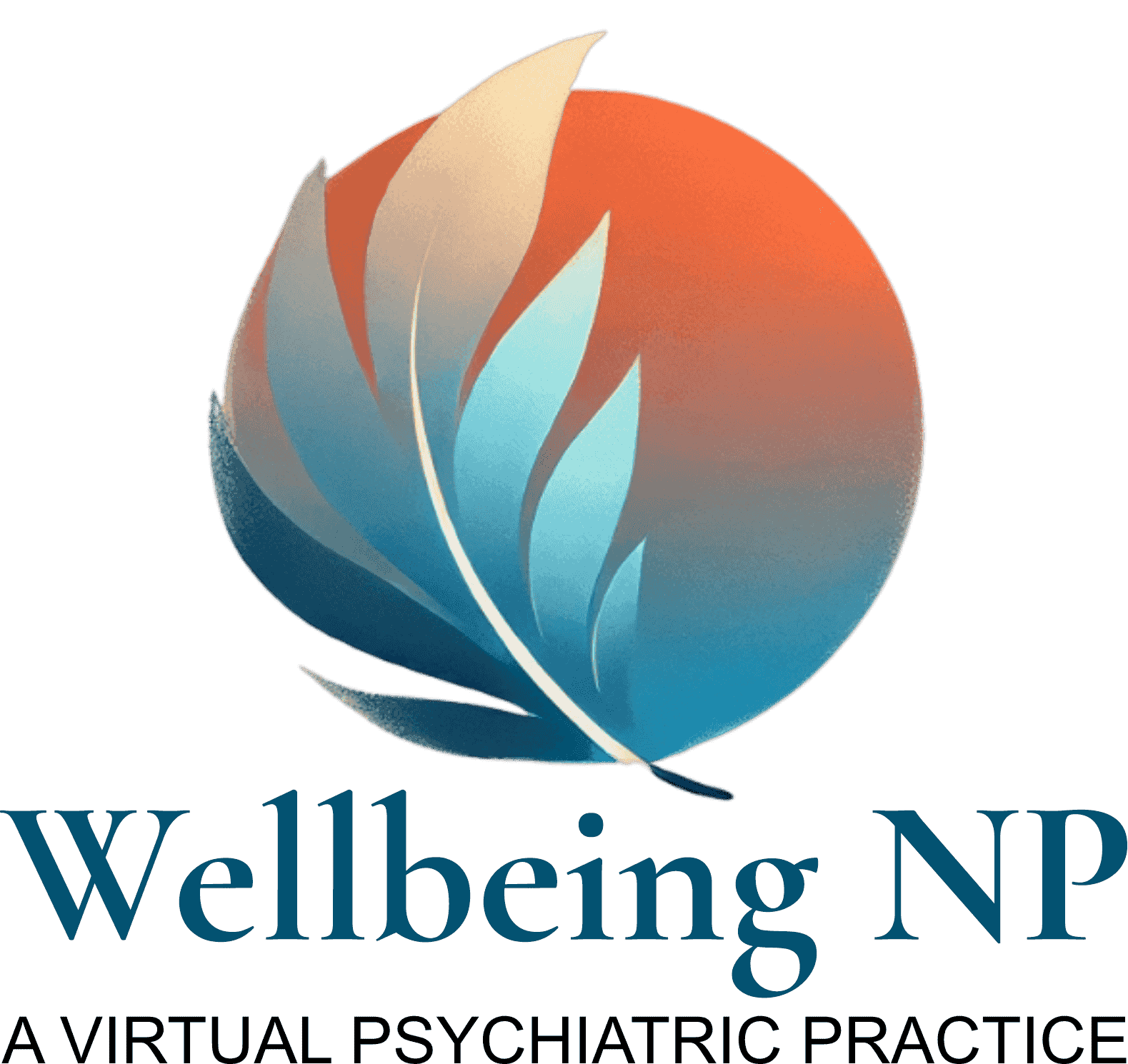
By Lindsay Fuson, FNP-C, PMHNP-BC | Wellbeing NP
The Scale of the Problem: Depression in 2025
Over 21 million U.S. adults experience major depression each year. It’s the leading cause of disability worldwide and one of the top risk factors for suicide. Yet the way we understand—and treat—depression hasn’t kept up with what science now knows. Some episodes resolve on their own. But 60% of untreated individuals will relapse within two years. Each relapse raises the chance of chronic depression, worsened physical health, and reduced treatment response. The urgency is real. The solutions are better than ever—when we move beyond the old chemical imbalance myth.
What We Got Wrong: The Monoamine Hypothesis
The dominant model—that depression stems from low serotonin or norepinephrine—shaped decades of antidepressant use. But newer research has challenged that view. The 2022 UCL umbrella review found no consistent evidence linking serotonin imbalance to depression. SSRIs and SNRIs can help—but likely via anti-inflammatory or neuroplasticity-related pathways, not just serotonin. Some SSRIs have antihistamine-like properties. Others modulate immune function and increase BDNF (brain-derived neurotrophic factor). Translation: we’re seeing results, but the old “low serotonin” story no longer fits.
What’s Really Going On in the Brain?
Mitochondrial Dysfunction
Mitochondria fuel your neurons. Dysfunction leads to low energy, oxidative stress, brain fog, and mood symptoms. Depression has been linked to impaired mitochondrial metabolism and poor neural resilience.
Chronic Inflammation
High CRP, IL-6, and TNF-alpha levels are often seen in people with depression. Inflammation can suppress serotonin, damage neurons, and impair neuroplasticity. SSRIs may help partly due to their anti-inflammatory effects, not serotonin boosting.
The Gut-Brain Axis
The microbiome makes neurotransmitters and influences mood. Dysbiosis leads to inflammation, vagus nerve disruption, and cognitive and emotional changes. A healthy gut is essential for a stable mind.
Nutritional Psychiatry: Fueling Neurotransmitter Health
Micronutrients Critical to Mood Regulation:
Vitamin B12 & Folate – Required for serotonin and dopamine synthesis
Magnesium – Supports NMDA receptor regulation and relaxation
Zinc – Modulates neurotransmitters and inflammation
Vitamin D – A neurosteroid involved in gene expression and immune modulation
Omega-3s (EPA/DHA) – Shown in meta-analyses to reduce depressive symptoms
Amino Acids & Macronutrients:
Tryptophan → Serotonin
Tyrosine → Dopamine
Complex carbs – Aid in tryptophan transport across the blood-brain barrier
Healthy fats – Fuel the nervous system and hormone signaling
These aren’t “extras.” They’re fundamental inputs your brain needs to make and regulate neurotransmitters.
What Happens If Depression Goes Untreated?
Functional decline. Cognitive “scarring” from repeated episodes. Increased risk of cardiovascular disease and metabolic syndrome. Higher risk of suicide or self-harm. Harder recovery after each episode. Depression may fade temporarily, but each untreated episode raises the stakes. Prevention, early treatment, and a multifactorial plan matter.
What We Do at Wellbeing NP (When the Usual Isn’t Working)
We support adults and teens in Georgia with evidence-based, neurobiologically informed care.
Genomic Testing
Through Genomind, we personalize care based on genetic pathways that affect medication metabolism, serotonin/dopamine activity, and inflammation risk.
Targeted Supplement Protocols
Third-party tested, research-backed support for mitochondrial function, methylation, neurotransmitter synthesis, and gut health.
Coaching + Lifestyle Support
Sometimes it’s executive function. Sometimes it’s nervous system overload. Often, it’s both. We help you build structure and regulation—without shame.
Further Reading
The Serotonin Theory of Depression — UCL, 2022
Mitochondrial Dysfunction in Depression – BMC Psychiatry
Harvard: Inflammation and Depression
Gut Microbiota and Mental Health – Nature Reviews Neuroscience
Nutritional Psychiatry – The Lancet
Final Word: You’re Not Broken. You’re Under-Supported.
If SSRIs haven’t helped, if symptoms keep coming back, or if you’ve been told “just do therapy and journal more”—let’s rewrite the script. We don’t just treat depression. We decode it.
Book a consult at wellbeingnp.com — insurance and self-pay options available.
Let’s get to the root of what your brain—and body—really need.








